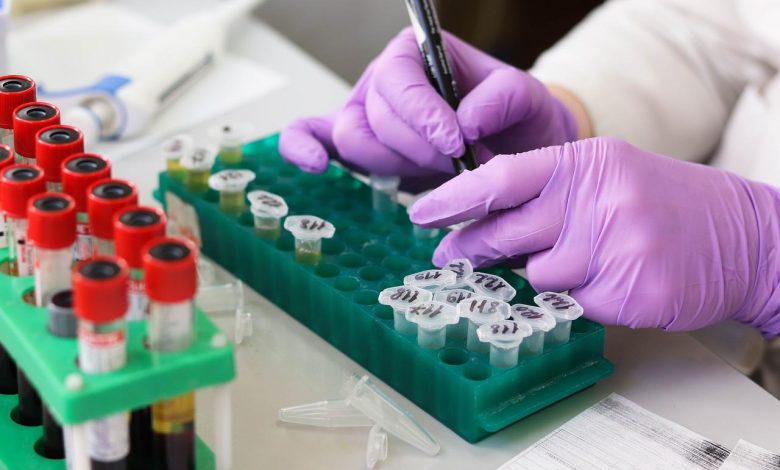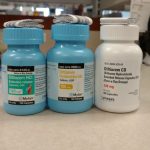How Long Does Ecstasy Stay In Your System?

What is Ecstasy?
Ecstasy contains 3,4-methylenedioxy-methamphetamine (MDMA), an illegal synthetic drug that alters mood and perception (awareness of surrounding objects and conditions). It is chemically similar to both stimulants and hallucinogens, producing feelings of increased energy, pleasure, emotional warmth, and distorted sensory and time perception.
Its primary effects are in the brain on neurons that use the chemical serotonin to communicate with other neurons. The serotonin system plays an important role in regulating mood, aggression, sexual activity, sleep, and sensitivity to pain.
Ecstasy was initially popular in the nightclub scene and at all-night dance parties (“raves”), but the drug now affects a broader range of people who more commonly call the drug MDMA or Molly.
How long do the effects of ecstasy last?
When taken orally, ecstasy normally takes 30 minutes to kick in, but it could take as little as 20 minutes, or it may take over an hour or more. Some other (more dangerous) drugs sold as ecstasy take longer to kick in. Users tend to feel high for 2 to 4 hours. You might still experience some physical effects, like a fast heartbeat or insomnia (not being able to sleep), for a few hours after you stop feeling high – especially if you take a lot. Some people find that ecstasy makes them feel down and low in mood the next day, known as a ‘comedown’. This can last for several days.
How long does Ecstasy stay in your system?
There are several factors that come into play when estimating how long ecstasy will stay in your system because every patient has physiology unique to them. Here are some major factors you should consider when trying to understand how long ecstasy will stay in your body:
• Age: Typically, the younger you are, the more efficient your body functions are. The more efficient your body functions, the faster ecstasy will be removed from your system.
• Amount: The higher the dose of ecstasy you have been taking, the longer Ecstasy will take to be removed from your system.
• Genetics: Genes predispose people to different metabolic functions, which is a key factor in how your body processes medications like ecstasy, for this reason, your genetic makeup comes into play when estimating how long ecstasy will remain in your system.
• Kidney and liver functions: The liver and kidneys eliminate everything you ingest, and ecstasy is no exception. If your liver or kidneys are damaged, it will most likely take longer for your body to remove the ecstasy from your system.
• Metabolism: Your metabolism determines how quickly you process foods, liquids, and drugs such as ecstasy. If your metabolism is slow, it will take longer for your body to process and eliminate ecstasy from its system than for someone with a fast metabolism.
• Usage frequency: The longer you have been taking ecstasy, the longer it will remain in your system. For example, it will take longer for someone who has taken ecstasy for several years to remove Ecstasy from the body than someone who has only been taking ecstasy for a few months.
Ecstasy has a half-life of approximately 8 hours. The half-life of a drug is the time it takes for the amount of a drug’s active substance in your body to reduce by half. About 94 to 97% of a drug will have been eliminated after 4 to 5 half-lives. Thus, it follows that after 4 to 5 half-lives, the plasma concentrations of a given drug will be below a clinically relevant concentration and thus will be considered eliminated.
This means that ecstasy will clear out of a person’s system within 2 days (approximately 40 hours). However, some studies suggest that the metabolites of the drug can stay in your body for up to 6 days after the last use but the elimination may vary based on multiple factors including the presence of contaminants usually found in ecstasy.
Ecstasy can be detected in drug tests that specifically include it as part of the panel of drugs being tested. It’s typically detectable in body fluids approximately 1 to 3 days after it’s taken. Detection times for hair can span several months.
How to flush Ecstasy out fast
A healthy diet plays a significant role in your recovery from ecstasy addiction. It restores the nutrients that were lost from substance abuse. Therefore, when eating your three meals a day, it is important to choose food that rebuilds your body’s tissue and boosts your energy levels. The right foods can accelerate your recovery, particularly during ecstasy detox.
During ecstasy detox, you should have access to nutritious fruits and vegetables that replenish vitamins and minerals. In many ways, a healthy diet can produce the same level of excitement and energy you felt when you were high with ecstasy.
You can flush ecstasy faster from your system by:
Drinking Enough Water: The most basic and essential food that can speed up your recovery is actually water. Your body has suffered from a lack of hydration for a long time. Although water is a neutral element – it provides no nutrients but also doesn’t harm your body in any way – it is the most basic sustenance you can intake during detox. Hydrate as much as you can in the first few days and keep drinking water throughout ecstasy rehab. The oxygen in water heals your body and gives you a ton of energy.
Eating Energy-Boosting food: Ecstasy addiction can drain your body of much-needed energy. When you lack energy, you are not motivated to do anything. Important food in recovery that restores energy includes:
• Healthy carbohydrates
• Leafy vegetables
• Peanuts
• Pistachios
• Almonds
These types of foods can also give you an extra kick of energy. Try to eat foods rich in iron, phosphorus, magnesium, calcium, potassium, and vitamins A, B, and E.





